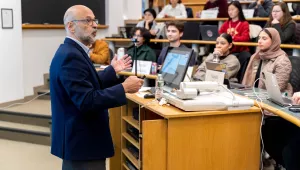Presentation at ETIP seminar series
India has been experiencing sustained high economic growth in the recent years. However, there still exists substantial amount of unacceptable poverty among the people in the country. The expressions of symptoms of such poverty include among others inadequate educational and health attainment of the people and lack of access to basic amenities like modern clean energy, safe water and sanitation, which are crucial determinants of human capability development. The eleventh five-year plan of India, which has recently been initiated, has taken the approach of inclusive faster growth for the development of the Indian economy. The basic paper on which the seminar will be based analyses the implications of this high inclusive growth for removing poverty and inequity, in respect of the twin challenges of environmental sustainability of the required energy growth and energy security in India. The energy security is discussed both in the sense of removal of energy poverty and that of reducing the level of vulnerability of the economy in the face of oil price rise as experienced in the recent years. It addresses particularly the question of linkage between income poverty and energy poverty and the implication of energy poverty alleviation in India in respect of global environmental sustainability. It further discusses in this context the instrumental role of choice of fuel and technology (like bio-fuel among others) and institutional changes like economic reforms in determining the energy efficiency as well as energy security of India. It finally addresses certain selected policy issues from macroeconomic perspective including that of policy linkage between energy security and food security in the context of bio-liquids development in India.
Sengupta, Ramprasad. “Sustainable Energy Development of India.” November 20, 2008


